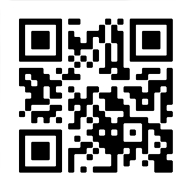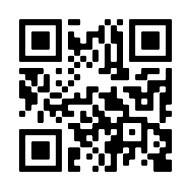What is the Best Way to Learn a foreign Language?
Well, of course traveling to the country where the target language is spoken and taking grammar, reading, writing, speaking and listening classes is an excellent way to learn a foreign language. Although, to really reap the benefits of a language immersion program, it is necessary to commit to studying and interacting with the target language both in the classroom and outside of the classroom.
Speak in English
This may sound like the most obvious, but it is frequently the most difficult for various reasons. For some, it may be the lack of confidence in speaking English. For others, it could be that their level of English doesn’t yet allow them to express what they want to say. Still, others may just naturally be introverted or quiet. However, if you want to learn English quickly, you have to speak. So, find ways to have real interactions with others in English. At Excel English Institute, students are encouraged to do the following to ensure they master their English skills.
In class, Excel students participate in discussion activities with people from other countries. Not only is this fun and interesting, it is a great way to use English in a meaningful and authentic way. Moreover, these friendships often grow beyond the limits of school and can lead to a lot of fun outings around town. That is a double bonus because you will speak with your new friends in English, and you will be in situations where you will have to interact with native speakers at a restaurant, a shopping mall, a zoo, or movie.
Students who learn the fastest are the ones who dedicate a specific amount of time for using the target language and refuse to speak in their native language during this time, even if the opportunity arises. So, try to find friends who speak another language or include an other language speaker in the group. Being forced to speak in English, your brain will find creative ways to express your ideas using the words and structures you already know, no matter what level you are. Forget the translator on your phone. Don’t let someone else speak for you. Don’t worry about sounding silly. This is a very valuable part of the process of learning a language.
But, even if you don’t go out with friends from school, it is important to find opportunities to speak. Put it on the calendar. Make it a part of your daily routine. It could be as simple as talking to the sales person at a store, or asking the cashier how his or her day is going. Join a fitness club, a community program, or a volunteer organization. You could also sign up for extracurricular classes or participate in school functions. A good school will provide fun activities which allow more authentic encounters with teachers and other students in addition to the classroom activities.
Listen to English
The key is to be an active listener by trying to understand the meaning of the content and recognizing vocabulary words. Some great ways to do this are by watching movies or TV series in English. Action movies are the best. Dramas are okay. Comedies are often the hardest. Forget about the subtitles (unless you want to work on developing your reading skills). Rather than subtitles, rely on the context of the actions you see and the words you hear. The visuals will help your brain fill in the gaps.
Will you understand it perfectly? Not yet. But, that isn’t your goal. Your goal is to train your brain to listen and discern meaning. Other ways to exercise your ears are by listening to music, podcasts, or Ted Talks. Choose topics that you are interested in or familiar with to help bridge the gap in meaning. Memorize songs and sing along. Over time and with practice, you will grow your understanding of vocabulary and verb structures by hearing them in a variety of contexts. Soon, you will notice that active listening will become a habit which will transfer into better conversation skills.
Read in English
Reading is an excellent way to build vocabulary and see how sentences are constructed. Choose books that you love, or that you may have even read in your native language. If you choose something too difficult, you may become discouraged and give up. So start easy and increase your level of difficulty as you feel comfortable. Newspapers, magazines, and blogs about topics you are interested in are also good sources of reading material.
Be Curious, Make Connections
Being curious about what you are studying (reading and listening to) means that you are actively thinking about what you are learning. In order to acquire another language, you have to be able to make connections and apply content to new contexts. Explore the language. Take an initiative in your own learning.
There are many ways to do this. A great way to start is by creating vocabulary groupings based on a common theme like household appliances. Create a chart for the objects (nouns) and another chart for the actions (verbs). As your vocabulary expands, create increasingly difficult vocabulary charts that include synonyms, antonyms, word forms (noun, verb, adjective, and adverb), phrasal verbs (“hang up”) and word collocations (“answer the door”). You can use internet resources like an online dictionary or list of collocations to help you. Some interesting topics for word categories are technology, the environment, nature, and travel.
Keeping a language journal is a wonderful way to self-study as you are learning English. This could be the same notebook you use for class, or it could be a memo app on your phone or a small journal. Write down any new words, idiomatic expressions or verbs you hear that you don’t fully understand, or are used differently from how you learned them. When you have time, research the meaning.
You can learn a language quickly if you want to, but you have to work at it. Remember to balance the study with the fun. So… Make friends. Form study groups. Watch movies. Investigate topics you are interested in. Speak, or read, to yourself out loud. Create word charts. Label all the items in your house with sticky notes. Change your phone and computer default language to English. Force yourself to speak in English. By doing all these things, you will become an active participant in your own learning. This will get your brain into motion and you will start making connections faster.















